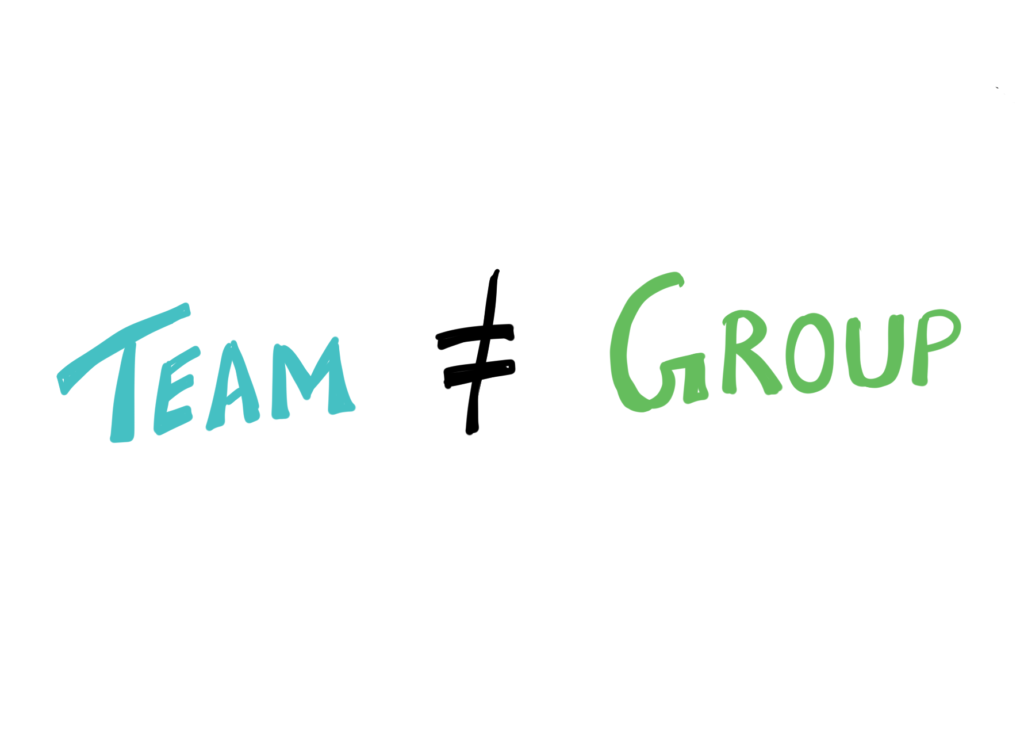
The words “team” and “group” are often used interchangeably in most organisations.
These two are however not the same.
There are some critical differences between a team and a group.
Understanding these differences will help you structure your organisation better.
More importantly, it will help you to decide the right way to set goals and performance measurements systems.
What is a Team?
A team is made up of individuals working with a common purpose towards shared goals. Members in a team have some level of interdependence in achieving a task. They also hold each other accountable for the tasks.
An example of a team is a sports team or a project team.
For a team to function well it needs:
- Clearly defined team purpose, goals and targets.
- Clarity of roles among team members and how each influences others.
- High level of trust and psychological safety among members.
- A robust system of communication and reviews between team members.
- The willingness by the team members to put the team goals above individual gains.
What is A Group?
A group is made up of individuals with some common factors or similar goals. While members in a group may offer support to each other the outcomes of one do not influence the other. In some organisations, the members of a group often compete against one another for outcomes.
An example would be a group of students in a classroom who have the common goal of completing a course.
For a group to function well it needs:
- Clearly defined individual goals and targets.
- A robust system of communication and reviews between individual and manager.
- A clear alignment between individual goals and organizational goals.
Team or Group?
So which of these is a better option?
The honest answer is, it depends. On you on what you want to achieve.
When choosing between setting up a team or a group the first question to ask is, “What would serve the organisational goal best?
Will having everyone work together collaboratively serve your needs better?
OR
Will having your employees compete against each other or work independently of each other work better?
